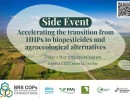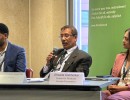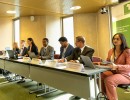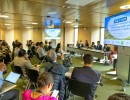Minister of Environment, Hon. Dr. Dammika Patabendi interacted at the Informal Ministerial Roundtable on 'challenges at national level to address plastic pollution' on 12 August 2025, held during the second part of the fifth session of the Intergovernmental Negotiating Committee on Plastic Pollution (INC 5.2) which is being held from 05-14 August 2025 in Geneva, Switzerland.


Distinguished Co-Chairs, Excellencies, Ladies and Gentlemen,
Sri Lanka extends its sincere appreciation to the Government of Switzerland for hosting this important meeting, and to the INC Secretariat for their tireless efforts and continued dedication towards the development of an international legally binding instrument on plastic pollution, including in the marine environment.
Sri Lanka is fully committed to addressing plastic pollution and has taken several proactive measures over the years. Among these, we have imposed restrictions on selected single-use plastic items, including plastic food containers, plates, cups, and cutlery. These measures reflect our national commitment to reduce the environmental footprint of plastic waste.
We are currently amended the National Environmental Act to further strengthen our regulatory framework. One of the key features of this amendment is the formal integration of Extended Producer Responsibility (EPR), which we believe is critical for ensuring sustainable production and consumption patterns.
Sri Lanka has also developed robust policy frameworks, including the National Policy on Waste Management and the National Policy on Chemical Management. These provide the foundation for a comprehensive approach to managing plastic and hazardous Chemicals across sectors.
A significant milestone was the launch of the National Action Plan on Plastic Waste Management 2021–2030, which sets out a clear and structured roadmap for tackling plastic waste based on 3R concept. In parallel, a nationwide awareness campaign on plastic pollution has been implemented with the support of international development partners, focusing on behavioral change and public engagement.
The engagement of informal waste collectors who form a critical link in the recycling chain continues to be one of Sri Lanka’s key strengths in advancing circularity in plastic management
Challenges at national level to address plastic pollution.
Even though, Sri Lanka has taken proactive measures over the year, we face several challenges that require international attention and collaboration.
First, we urge global standards to ensure that children’s products such as infant feeding bottles and slippy cups are free from hazardous chemicals, including phthalates and BPA. Transparency in the chemical content of plastic products is essential for both health and environmental protection.
Second, with regard to Article 7 on release and leakage, we strongly advocate for mandatory global packaging standards that prevent plastic leaching into marine ecosystems. The MV X-Press Pearl disaster, which released over 12,000 metric tons of plastic pellets into our coastal waters, remains a devastating example of the irreversible consequences of plastic leakage.
We also face technical, social, and economic barriers to implementation such as limited infrastructure for advanced recycling, lack of behavioral change at the community level, and financial constraints for innovation in biodegradable alternatives.
To overcome these, Sri Lanka calls for enhanced global cooperation to:
- Strengthen the science-policy interface;
- Support public awareness campaigns;
- Facilitate technical exchange programs, and policy development.
Plastic pollution is a global crisis. Let us act now together with urgency, clarity, and equity.
Excellencies, we believe that the legally binding instrument under negotiation must incorporate a comprehensive approach across the full lifecycle of plastics and provide enabling mechanisms for implementation, particularly for developing countries.
Sri Lanka stands ready to work constructively with all partners to achieve a global agreement that is ambitious, inclusive, and responsive to the needs of the most vulnerable.
Thank you.
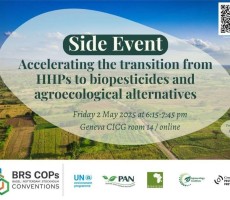
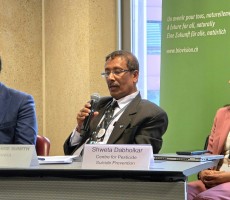
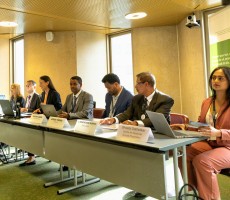
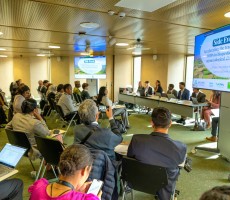
Sri Lanka’s participation at the hybrid side-event titled "Accelerating the transition from HHPs to biopesticides and agroecological alternatives" - 2 May 2025 held during the Meetings of the Conferences of the Parties to the Basel, Rotterdam and Stockholm Conventions in 2025 was led by Secretary to the Ministry of Environment Mr. K.R. Uduwawala and included officials from the Ministry of Environment, Department of Agriculture and Central Environmental Authority.
Photo Credit: BRS Convention/Kiara Worth
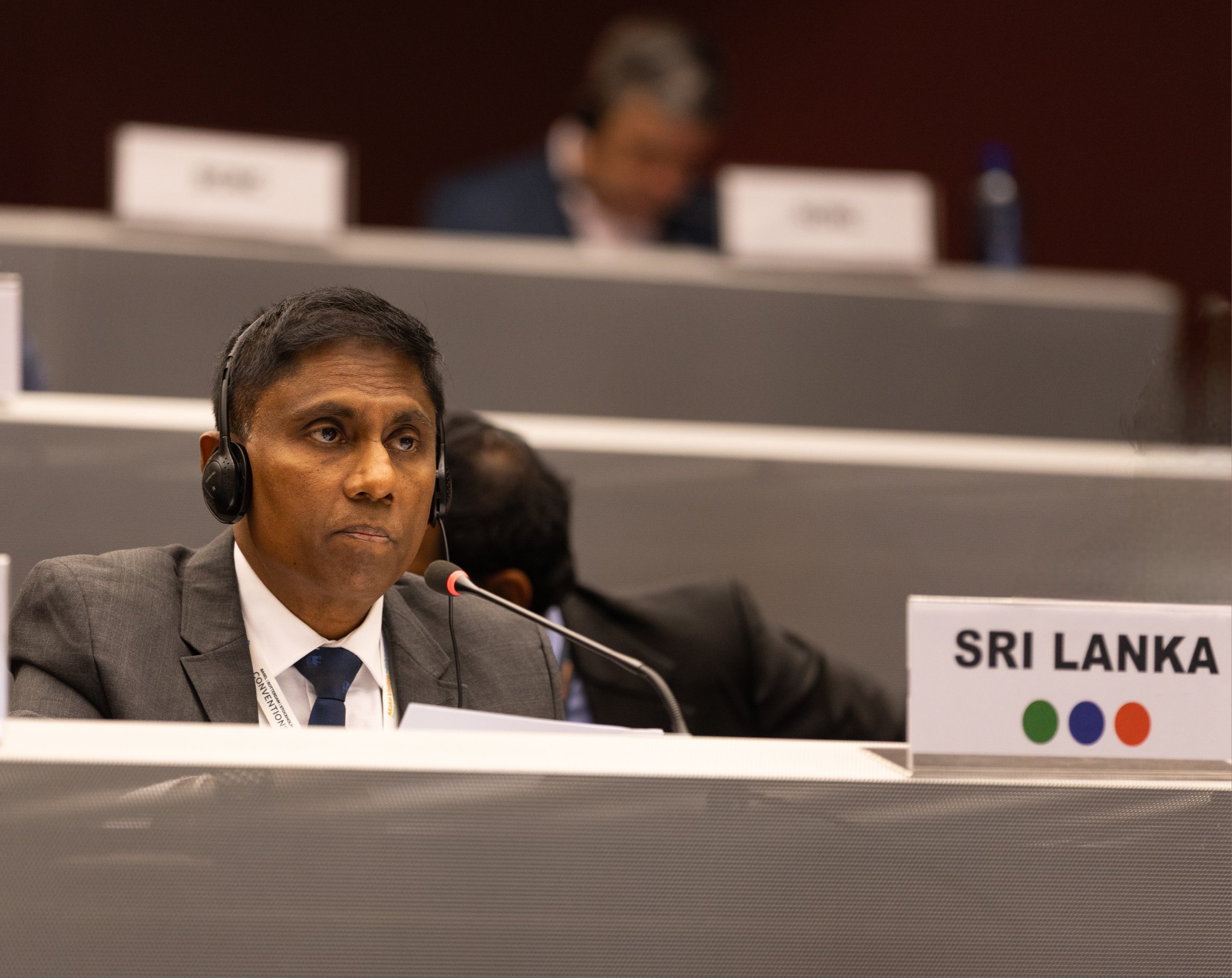
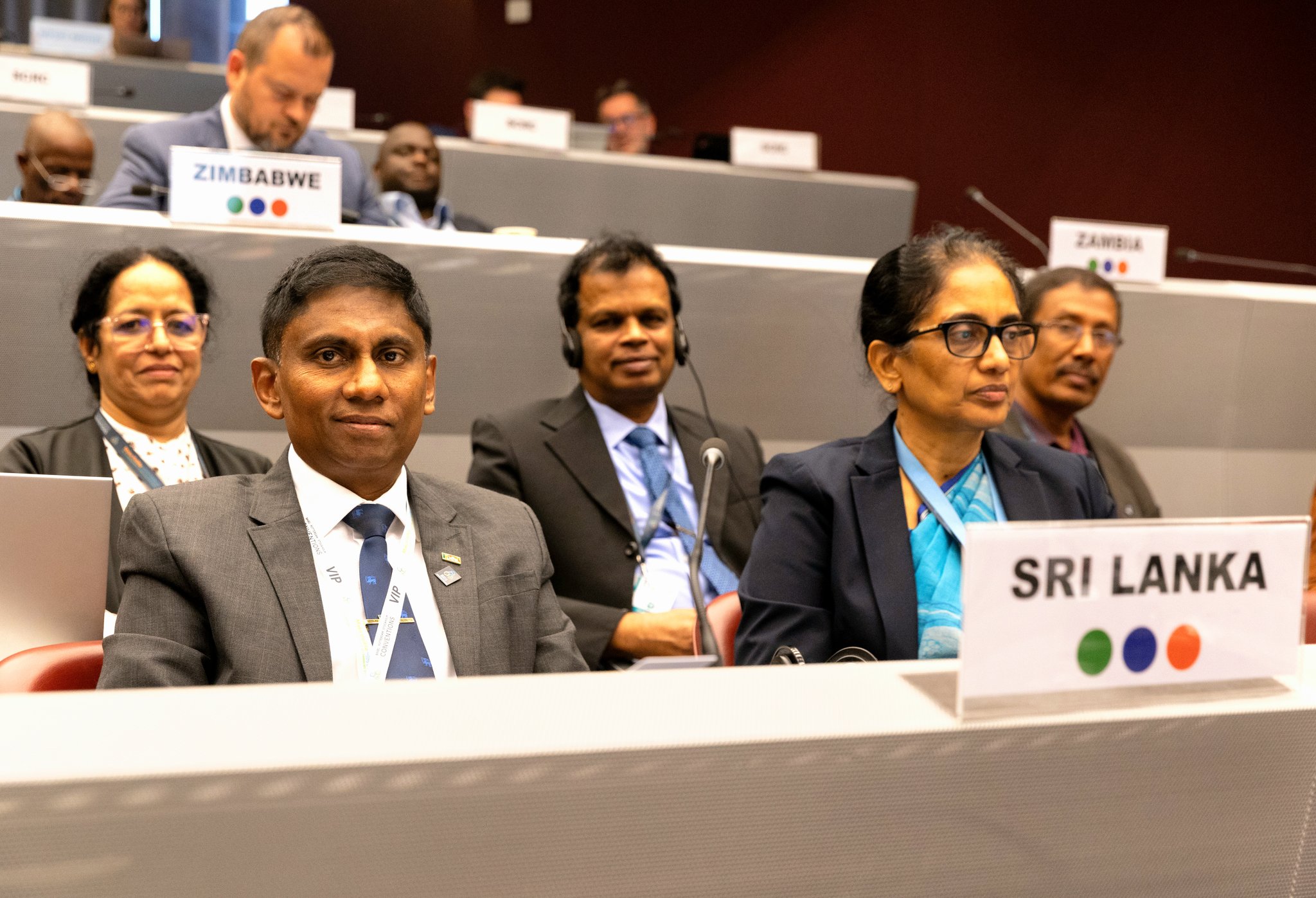
Honorable President, Excellencies, Distinguished Delegates,
Sri Lanka reaffirms its strong commitment to the Basel, Rotterdam, and Stockholm Conventions, recognizing their vital role in supporting our development, addressing climate change under the Paris Agreement, and conserving biodiversity. These Conventions are well integrated into our national policies and action plans, ensuring environmentally sound management of hazardous chemicals and waste.
Tsunami: Sea Change for Resilience


Special Representative of the Secretary General for Disaster Risk Reduction Mr Kamal Kishore,
Ambassador Oike Atsuyuki, Permanent Representatives of Japan
Ms. Ana Luiza Massot Thompson Flores, Director, UNESCO Liaison Office in Geneva
Ms. Hanna Entwisle Chapuisat, Curator of the exhibition,
Ladies and gentlemen,
I thank the organizers, the UN Office for Disaster Risk Reduction, the Intergovernmental Oceanographic Commission of UNESCO, and the Permanent Mission of Japan, for inviting me to speak on this occasion.
26th December this year marks 20 years since the deadly Indian Ocean tsunami that killed over 230,000 people across 14 countries including my own, Sri Lanka. The tsunami that struck on Boxing Day, is reportedly one of the deadliest natural disasters in recent human history.

Secretary General Prof Celeste Saulo,
Dr Stefan Uhlenbrook
Excellencies, Friends,
I’m deeply honoured to have been invited to speak at the launch of WMO’s State of Global Water Resources Report 2023. I would like to start by congratulating the WMO team for the hard work that must have gone into producing this Report.

Ministry of Environment organized side event on 'Hepatoprotective activity of Mercury containing Lokanatharasa with special reference to Hepatocellular carcinoma' was held during the Fifth meeting of the Conference of the Parties to the Minamata Convention on Mercury (COP-5) on 2 Nov 2023 in Geneva. Prof. Sujeewa Harapathdeniya of Institute of Indigenous Medicine joining virtually made a presentation based on research conducted in SriLanka with United Nations Industrial Development Organization (UNIDO) and Swiss government assistance.

President Ranil Wickremesinghe addressing the COP 27 Climate Change Conference in Sharm El-Sheikh, Egypt said that unbridled industrialization of the developed countries is the root cause of climate change, leaving the poor to suffer the consequences. He said that the problems facing poor countries are augmented due to the absence of adequate funding.
As a result, these countries are facing double jeopardy – struggling to develop economically while fighting to protect the living standards of their populations.
Therefore, President Wickremesinghe said that the developed countries must deliver on their pledge in Glasgow – by doubling their funding to compensate the developing countries for loss and damage.










